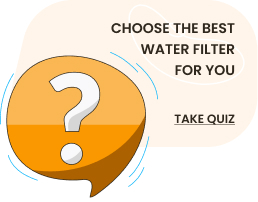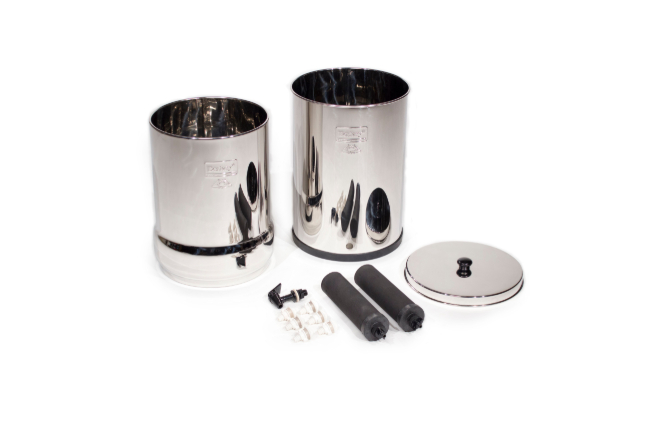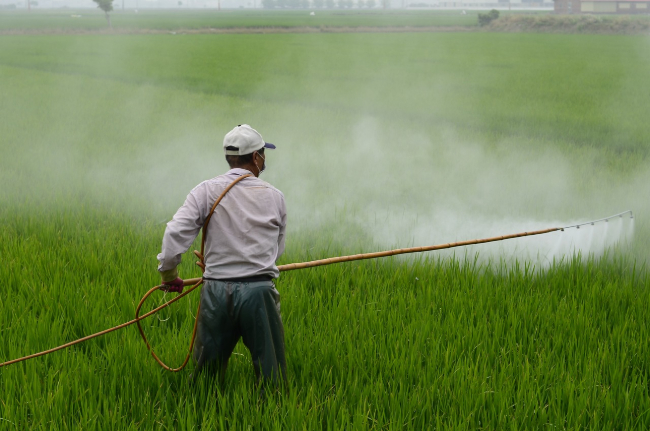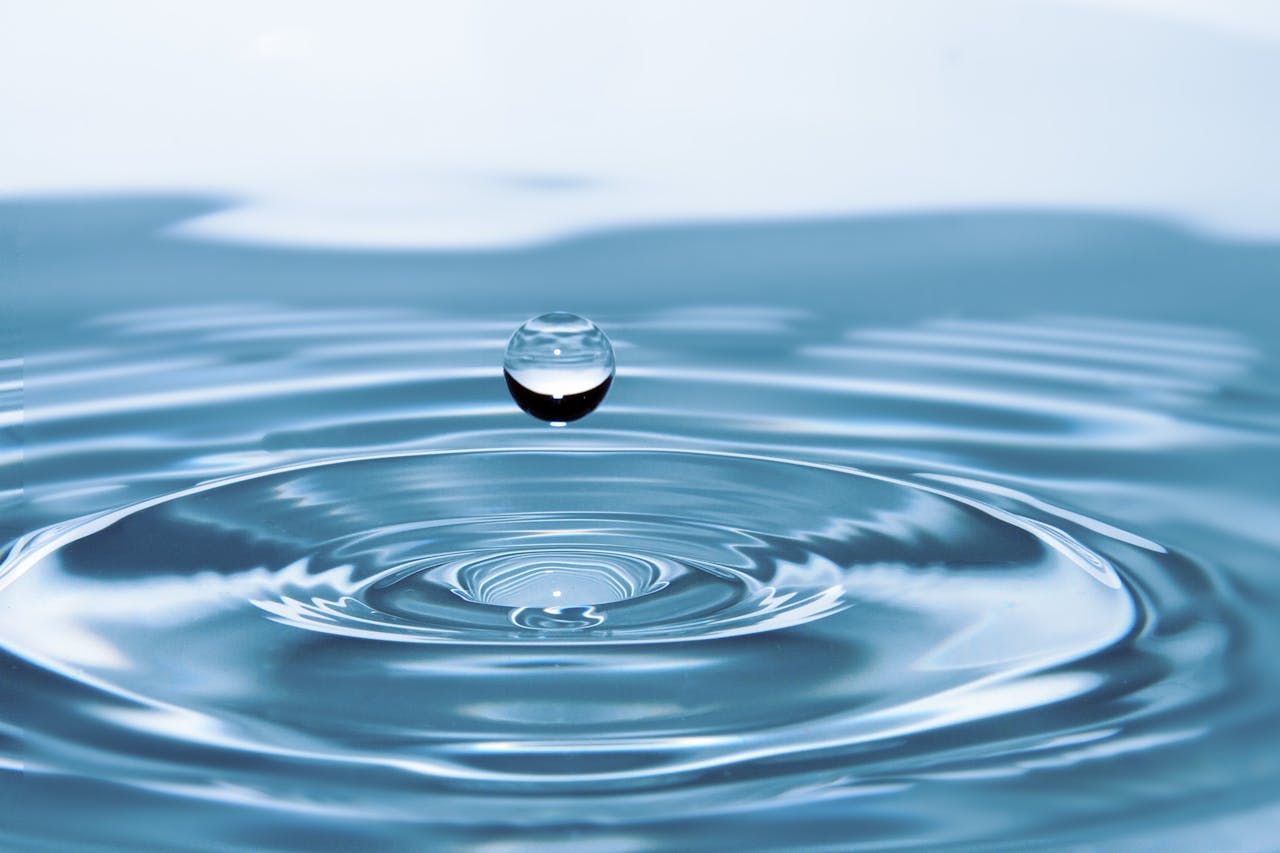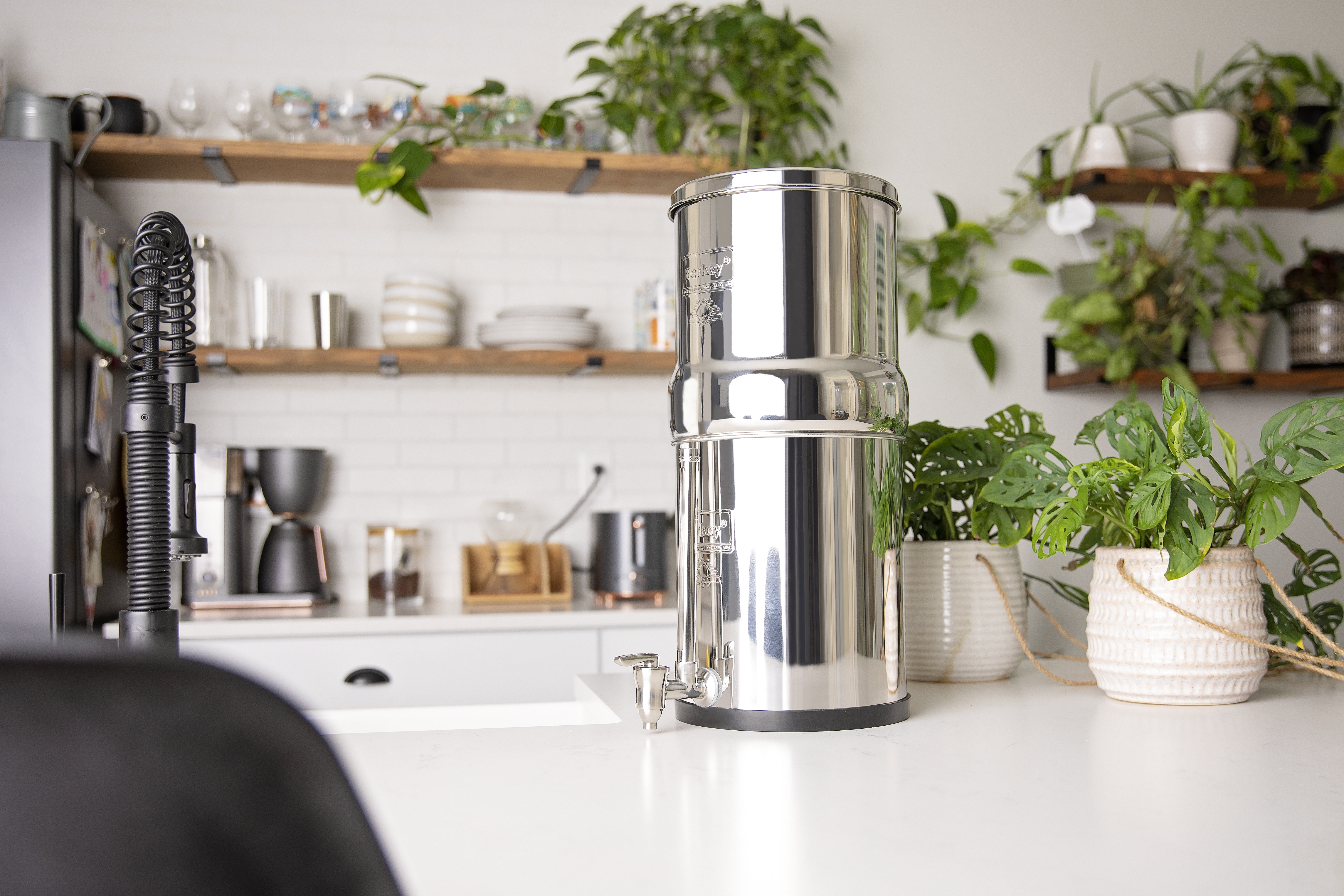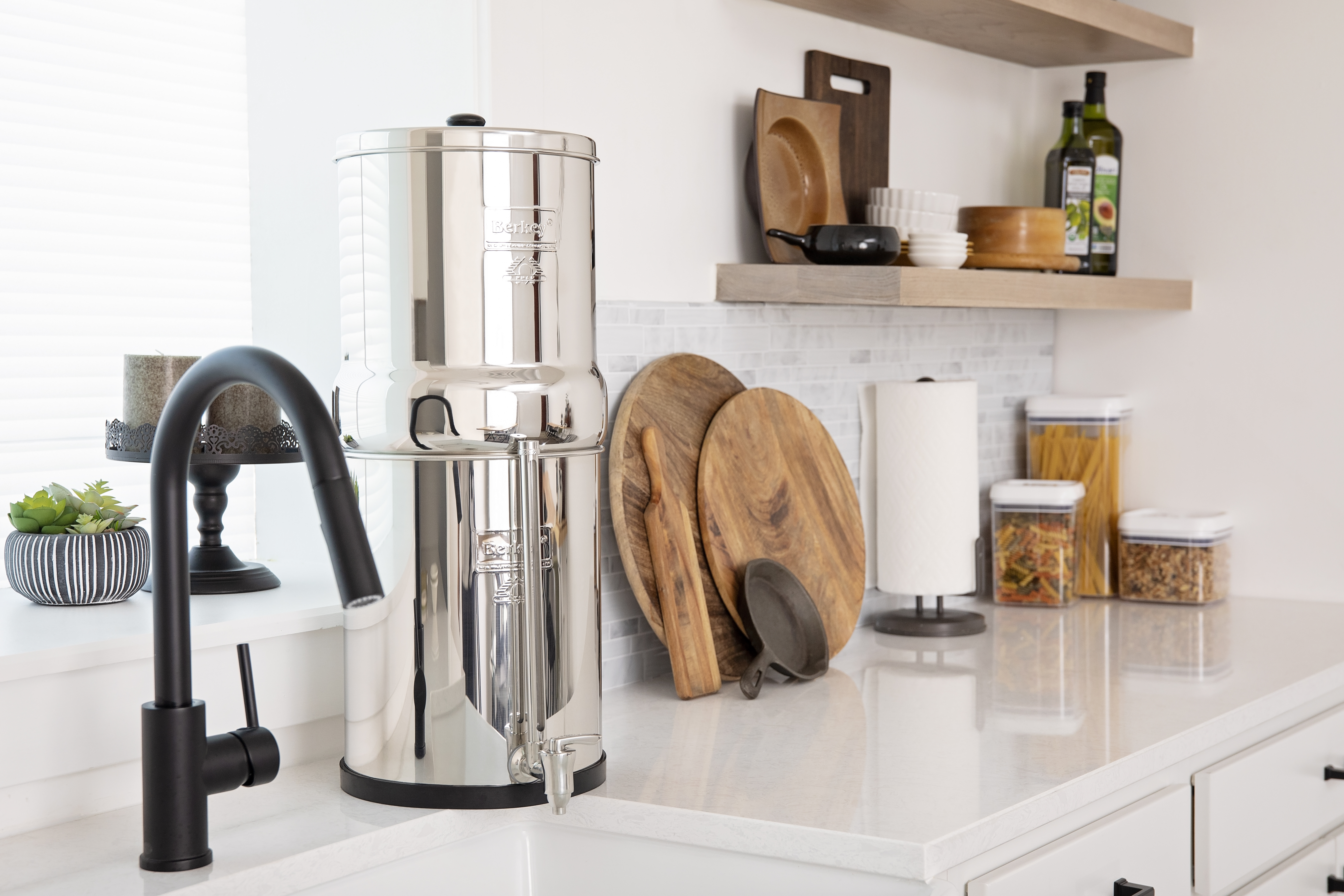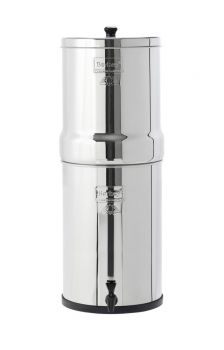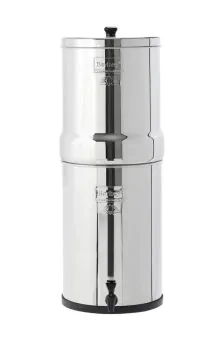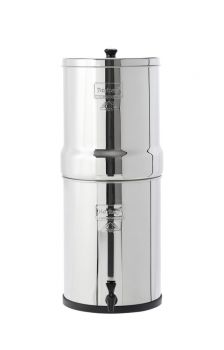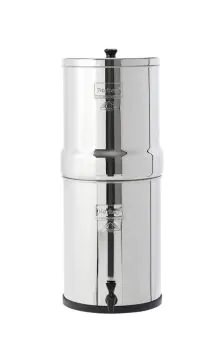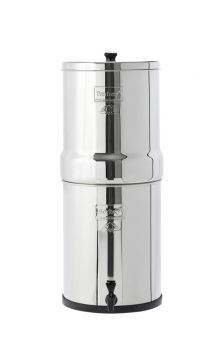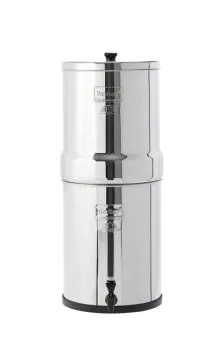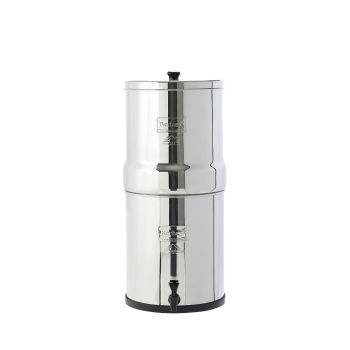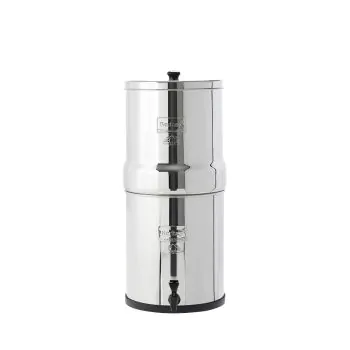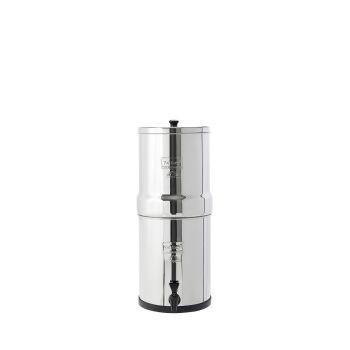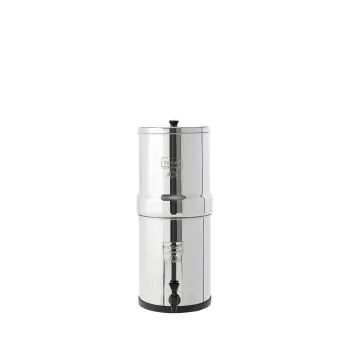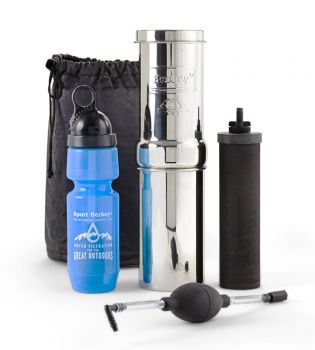Water itself doesn’t expire or go bad, as it’s a stable substance and doesn’t spoil on its own the way food does. But here's a catch: the containers it is stored in can affect its quality over time.
When stored in sealed containers and under appropriate storage conditions, water can remain safe to drink indefinitely. However, the quality of water can be degraded if it is exposed to contaminants and chemicals leaching from plastic containers, or if it is stored inappropriately (for example, exposed to high heat or direct sunlight).
In this article, you'll learn:
- Does Bottled Water Go Bad After the Expiration Date Has Passed?
- Can a Glass of Water Go Stale?
- Which Water Will Stay Fresher for Longer: Tap or Filtered?
- What Happens if You Drink Expired Water?
- Signs Water May Be Unsafe
Let's take a closer look at this topic today so you'll get answers to any questions you may have regarding the drinkability of the “expired” water.
Does Bottled Water Go Bad After the Expiration Date Has Passed?
Bottled water often has an expiry date, which may lead consumers to believe that the water has a limited lifespan and can go off after this date has passed. In reality, the "best by" date is typically a guideline for the container's integrity rather than the water itself.
Over time, if plastic bottles are exposed to heat or sunlight, chemicals like bisphenol A (BPA) or phthalates from the plastic can leach into the water, potentially affecting taste and safety. Additionally, stored water can also absorb odors or flavors from its surroundings if not sealed properly.
To minimize risks, it’s recommended to store bottled water in a cool, dark place and away from direct sunlight.
But even if you store bottled water properly, you don’t know what conditions it has been exposed to during transportation and storage throughout the supply chain from the point of production to the store, and then to your home.
While it may be safe to drink bottled water after the expiry date, as a general rule of thumb, it’s advisable to do so within two years of purchase for optimal taste and safety.
Since plastic bottles are the primary cause for concern, filtering water and storing it in food-grade or glass containers offers a safer alternative for long-term emergency water storage, and will ensure you always have a safe supply of water on hand should your water supply be disrupted.
Can a Glass of Water Go Stale?
Water in a glass left out on the counter doesn’t "go bad" in the way food does, but it can become less desirable to drink over time for several reasons:
- Dust and debris: Over time, dust, particles, or small insects can settle into the water, making it less hygienic.
- Taste changes: Water left uncovered can absorb odors from the surrounding environment, which may alter its taste.
- Bacterial growth: While clean water is generally safe, bacteria from the air or from the surface of the glass can eventually start to multiply, especially after many hours or days.
- Carbon dioxide absorption: Water can absorb carbon dioxide from the air, which slightly lowers its pH, giving it a "stale" taste.
In general, it’s fine to drink water that’s been left out for a few hours or even overnight, but beyond that, it may start to taste off or become contaminated.
However, to err on the side of caution, a safer option would be to consume water from a portable BPA-free water bottle filter, such as the Sport Berkey, rather than from a glass that has been standing on the counter, exposed to dust and other contaminants for hours on end.
Which Water Will Stay Fresher for Longer: Tap or Filtered?
How long tap and filtered water can sit in the open without going stale depends on their initial quality and any additives they contain.
As filtering water removes bacteria and other microorganisms, one would naturally assume it would stay fresher for longer. Surprisingly, this may not necessarily be the case.
Tap water often contains chlorine or chloramine, which act as disinfectants to kill bacteria and other pathogens. This can help tap water stay fresher for longer when left out, as these chemicals slow down bacterial growth.
Consequently, tap water left in an open glass may remain safe for around 12 to 24 hours, but after that, it can begin to lose its freshness. As the chlorine dissipates, bacteria from the air or the surface of the glass can start to multiply, causing the water to become stale and taste off.
Filtered water on the other hand, typically has chlorine removed, which is a good thing, as exposure to chlorine can be harmful to our health.
However, by removing chlorine, the water doesn’t have the same protective barrier against bacterial growth. By the same token, filtered water also has no microorganisms, meaning there are fewer bacteria and other nasties.
So while filtered water is safer to drink initially, it can become stale and susceptible to bacterial growth a bit faster than chlorinated tap water, potentially within 6 to 12 hours, depending on the environment, when left in an open glass on the counter. Just bear in mind that this is because its quality is generally better.
Warm temperatures and dusty or unclean environments can speed up contamination for either tap or filtered water. Both types of water will last longer if stored in a sealed or covered container, which helps prevent exposure to airborne contaminants.
What Happens if You Drink Expired Water?
Drinking old water, especially if it has been left uncovered or improperly stored for an extended period, can have varying effects depending on the conditions in which the liquid was kept and what’s in it. Here's what can happen under various scenarios:
The Water Is Clean and Properly Stored:
If the water is clean and stored in a closed, clean container, even if it's been sitting for a few days, it’s likely safe to drink. The taste may become stale due to the absorption of carbon dioxide from the air, which slightly lowers its pH, but it won’t generally harm you.
The Water Is Left Out or Exposed to Contaminants:
If water is left uncovered in an open container, it could collect dust, debris, or airborne microorganisms (bacteria, mold spores, etc.), which may lead to contamination. While small amounts of these contaminants usually won’t cause serious harm, they can pose a risk if the water sits for a prolonged period, especially in warm environments.
Drinking water with a high bacterial load could lead to mild gastrointestinal issues like stomach cramps or diarrhea.
If water is stored in a plastic bottle for a long time (especially if exposed to heat or sunlight), chemicals like BPA or phthalates could leach into the water. While consuming small amounts is unlikely to cause immediate harm, long-term exposure may pose a potential health risk.
Drinking Standing Water:
If water is standing for days or weeks, especially in outdoor environments or open containers, it can become a breeding ground for bacteria, algae, or even mosquitoes. Drinking stagnant water can pose a higher risk of illness, including gastrointestinal infections from bacteria like E. coli or Legionella.
If you rely on water that has been standing or stored outdoors for a long time as a source of drinking water (for example, harvested rainwater stored in a rain barrel) it would be safer to filter it with a high-quality water filtration system such as a Berkey water filter.
Berkey Water Filters
Signs Water May Be Unsafe
Several tell-tale signs could indicate the water may not be safe to drink, including:
- Foul or off-putting odor: If you notice a plastic or chemical-like odor, it may indicate that chemicals (such as BPA or phthalates) from the plastic bottle have leached into the water, especially if the bottle has been exposed to heat or sunlight. By the same token, a stale, musty, or foul smell could suggest that bacteria or mold has contaminated the water, especially if the bottle was opened and left exposed for a while.
- Discoloration: Water should be clear. Any discoloration, such as green (indicating algae), brown, or yellow tinges, could signal contamination or chemical reactions.
- Visible particles or sediment present: If the water appears cloudy or has floating particles, it could indicate bacterial growth or contamination from the bottle’s degradation. Particles or sediment in the water may suggest contamination, either from the environment or the breakdown of materials in the bottle.
- Strange or off taste: Water can absorb carbon dioxide from the air, which can lower the pH slightly and give it a "flat" or stale taste. While this doesn’t necessarily mean the water is harmful, it might indicate it has been sitting for too long. If the water tastes plasticky, this may be a sign of chemical leaching from the bottle. Even if the water is not harmful in small amounts, it indicates the bottle may have degraded, and it’s best to avoid consuming it.
In general, it’s a good idea to avoid drinking old water if it's been exposed to contaminants or has been sitting out for an extended period. If water smells or tastes off, it’s best to err on the side of caution.
We've covered the topic of whether drinking water has an expiration date, but there are still many other factors to consider if you want to ensure that you and your loved ones are drinking clean, safe water. Sign up for our newsletter and check out our other blog posts to stay informed!
FAQ
Does water go bad?
While water itself doesn’t go bad, it can become contaminated or change in quality based on storage conditions, exposure to air, or the container it’s in. Keeping water in clean, sealed containers in a cool, dark place helps ensure it stays fresh and safe for longer.
How does water go bad?
Water itself doesn't inherently go bad, but its quality can deteriorate over time due to external factors like contamination, environmental exposure, and storage conditions, making it taste off.
Is it safe to drink old water?
If water has been stored properly and shows no signs of contamination (like odor, discoloration, or particles), it’s generally safe to drink even if it’s "old." However, if water has been exposed to the environment, stored in a warm place, or stored in plastic for an extended period, it’s best to be cautious. Always prioritize clean, sealed containers and cool, dark storage for long-term water safety.
How to tell if a water bottle has gone bad?
Rely on your senses—check for unusual smells, tastes, cloudiness, or discoloration. Also, inspect the bottle for signs of degradation like brittleness or discoloration, especially if it’s an older plastic bottle or has been stored in less-than-ideal conditions. When in doubt, it's safest to discard the water and the bottle.
How long can a glass of water sit out?
For optimal freshness and safety, it's best to drink water that has been left out for no more than 12 hours. After that, the risk of contamination increases, and the taste may become stale. If the water has been sitting out for more than 24 hours, especially in a warm environment, it’s better to discard it.
